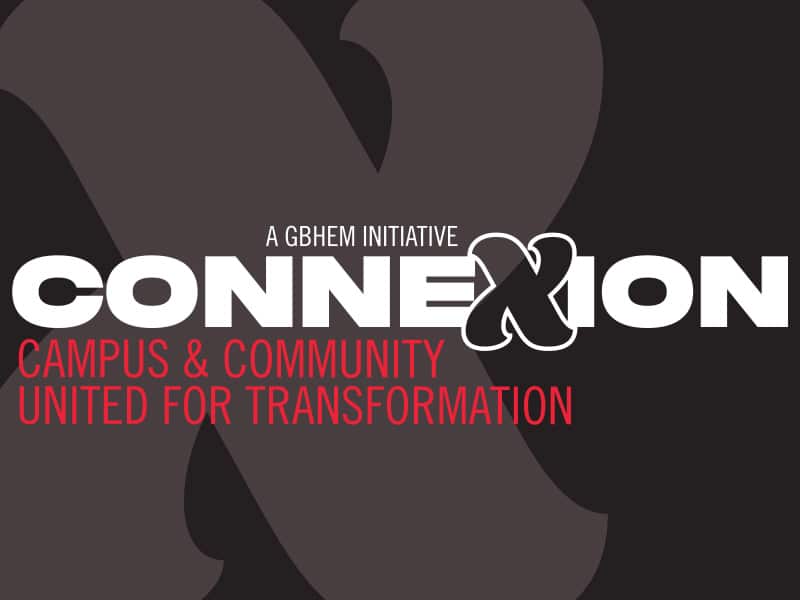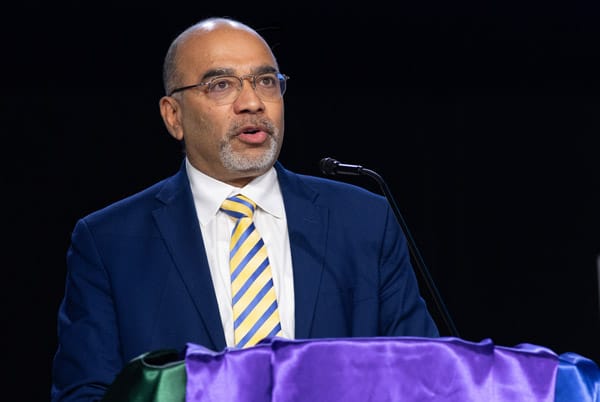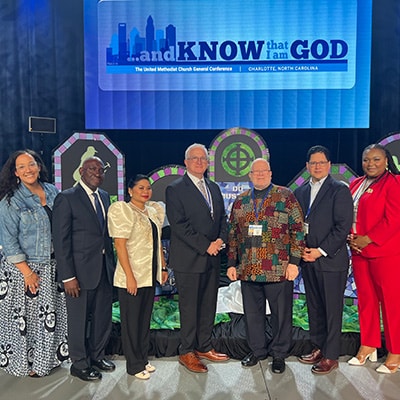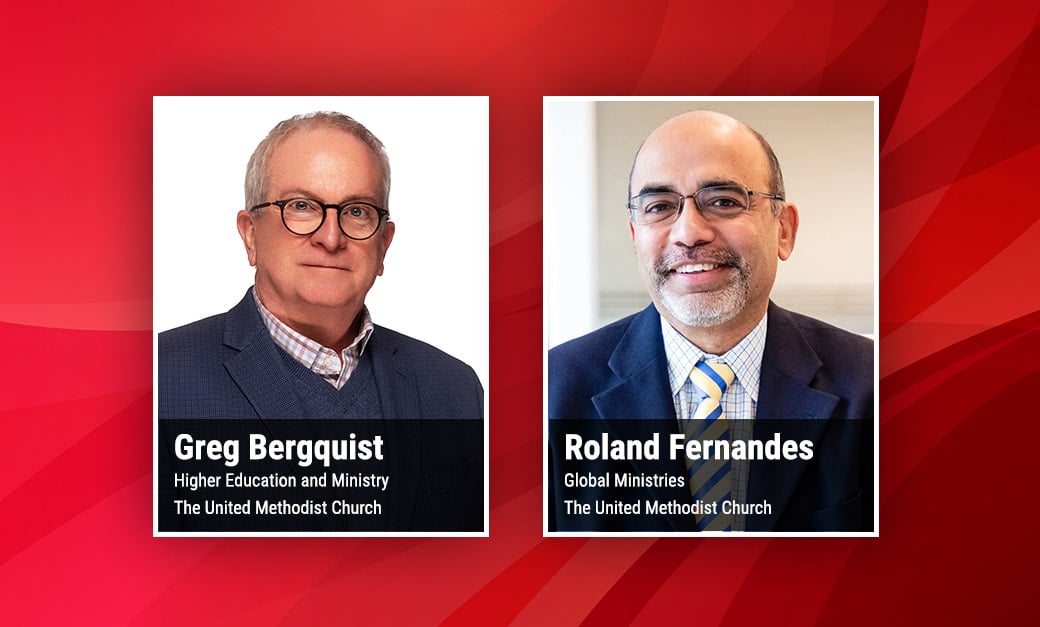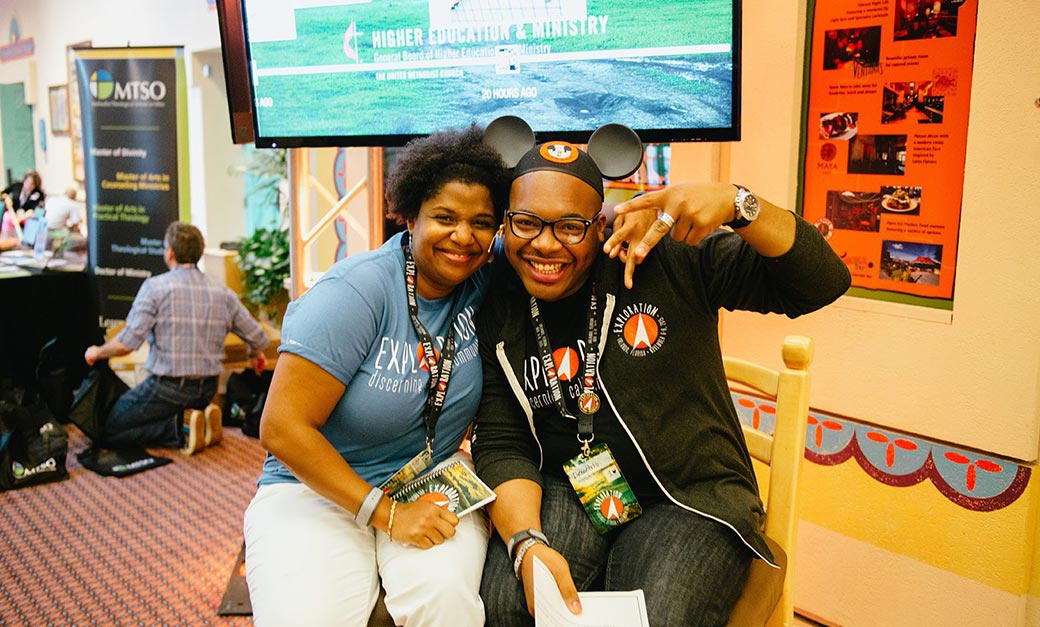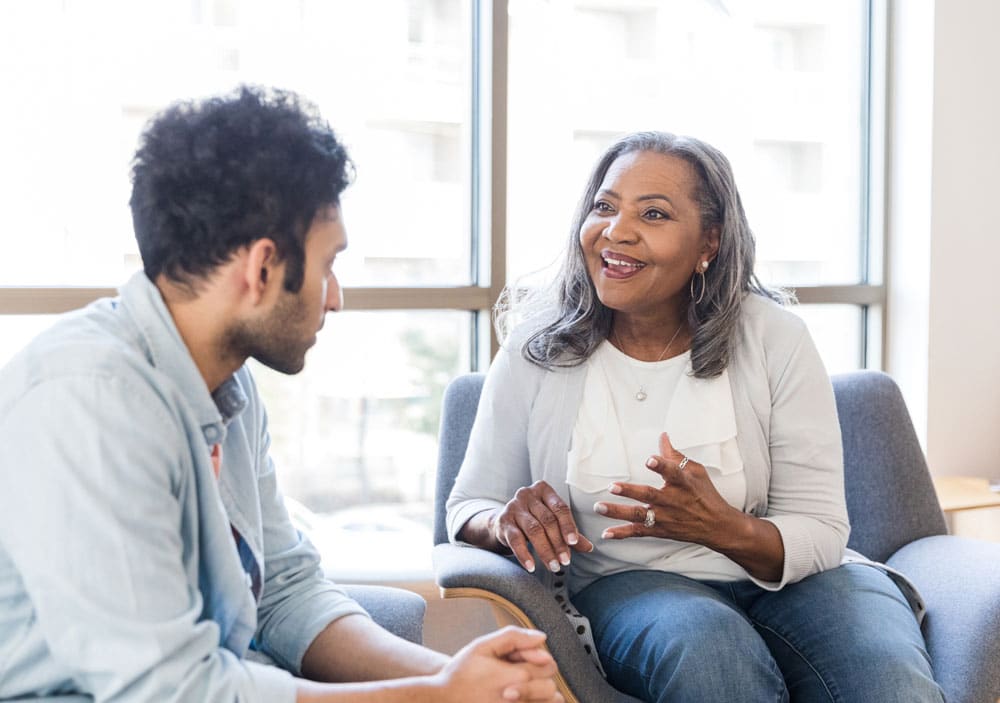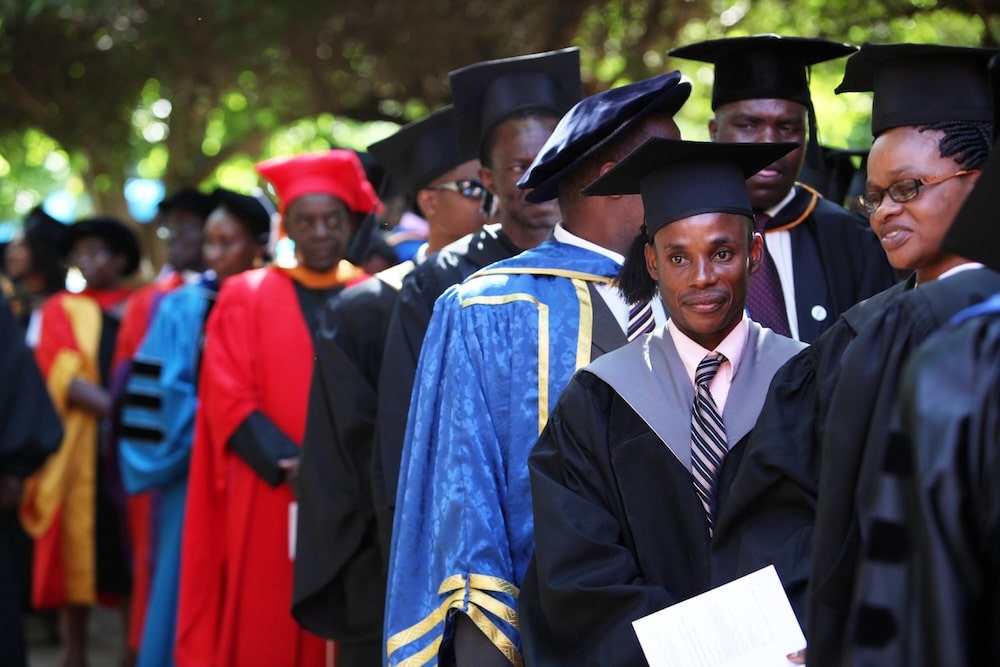Women of Color Scholars’ Series: Kang Finds God’s Love in the ‘Layers’
By Jessica Love
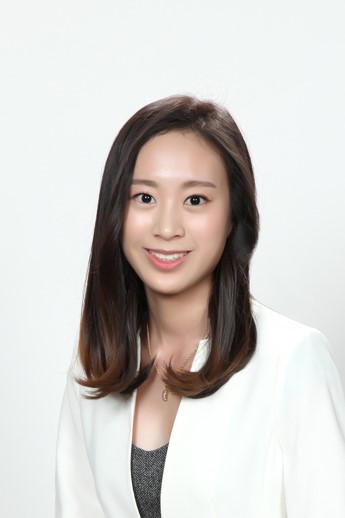
The daughter of a single mother with breast cancer, Hayoung Kang’s own traumatic experiences inspired her call to ministry. Now, as an Angella P. Current-Felder Women of Color (WOC) Scholar, she is empowered to create political theology and philosophy to help others navigate trauma.
The Angella P. Current-Felder Women of Color (WOC) Scholars program is administered by the General Board of Higher Education and Ministry (GBHEM), and is designed to provide financial, intellectual and personal support to United Methodist women of color pursuing doctorates in religious studies at seminaries and universities across the U.S.
Kang’s father died when she was a child, leaving her mother to raise her alone in South Korea. Kang said that even though her mother is a very strong woman, growing up without a father in Korean society presented a lot of struggles.
“In Korea, not having a father, not having a male member in your family means a lot because it’s still a patriarchal society. Having a father figure in your family feels like a little more a protection. But in my case, I didn’t have a father,” she said.
Kang’s mother’s faith carried her through those experiences. It was her mother’s devotion to God that inspired Kang’s call to ministry.
“It was always my mother’s faith, routine and morning prayers. We had family worship services from time to time, and those spiritual experiences really helped me to cope with challenges that I was facing in school and society. That’s when I started to want to do something within the field of Christianity and within the faith community.”
After graduating from Yonsei University in Seoul, South Korea, Kang was excited to follow God’s call to ministry in America at Drew University in Madison, New Jersey. Yet, that decision would prove to be one the greatest challenges in her life.
“Just before I decided to pursue my degree, she [Kang’s mother] was diagnosed with breast cancer. It was a very critical moment of her life, and I had to decide whether to stay with her in South Korea or to follow God’s calling, but that meant I had to be away from my mom,” said Kang.
The two prayerfully decided that Kang should go to America to pursue her call to ministry. It was a painful experience for Kang.
“Since my dad is gone and I was the only child, it meant that she’s isolated there in South Korea, and that was a very hurtful moment for me.
Confronting Her Truth
Kang is now in her first year of doctoral studies at Drew Theological School and is focusing on theological and philosophical studies.
She said that her experience in the program has already been life changing, because it has inspired her own healing.
“I came here, and I tried to avoid, probably unconsciously, that issue,” Kang recalled. “But during the systematic theology class my very first semester, we had to read ‘Trauma and Grace’ the book by Serene Jones. I finally realized that it had been a very traumatic experience, that I had to make that decision for my career, for my calling. But at the same time, leave my family there.”
Confronting that truth was difficult for Kang, but the love and support of mentors and friends have helped her cope with the pain of leaving her mother.
Building Connections and Navigating Different Cultures
Support is also why Kang was interested in the Women of Color Scholars program.
“During the interview, they talked about how this can be various connections for us—how the people can support each other. And I think that’s very important. I’m especially realizing that now that I came to the U.S. It feels like we need to be in solidarity with each other. It’s not a single journey, but we’re in this web of lives together,” she said.
Kang believes that the support the WOC program provides is especially important for international students because it teaches them how to make connections in cultures unlike their own.
“Having those connections means something very different from how, I think, domestic students might feel about it, because in different cultures we connect to people in different ways. But sometimes, I just don’t know how to do that. And this has been a very spectacular thing for me, to learn how to do and experience those connections,” said Kang.
A Theology to Communicate God’s Love
Kang’s own life experiences have fueled her desire to communicate God’s love to those who need liberation from traumatic experiences. Her work especially considers the context of South Korea.
“South Korea had been colonized, and we lost national sovereignty and we recovered from that injury. So, South Korean people, we inhabit those spaces in between. We carry those traumatic memories of being oppressed and colonized. And now, we have gained independence and somehow, we are working as a neo-agency, for a neo-colonialism and neo-imperialism,” she explained.
Kang said her hope is to create a philosophy that people, not only in South Korea, but in similar places can also have theologies to communicate God’s love in more ways.
“It’s not us or them binaries, but there are different stages to this, and we are responsible for liberating more people… We still need liberation from our trauma—those multiple layers of oppression—and perhaps a way God’s love can be communicated within those layers,” she said.
You can help theologians like Kang further communicate God’s love by supporting the WOC Scholars program. To give directly to the program, visit: www.gbhem.org/donate4students.
About GBHEM: The General Board of Higher Education and Ministry embraces the ministry of learning and leadership formation in The United Methodist Church and Wesleyan tradition; serving Christians around the world who are shaped by a process of intellectual engagement, spiritual and character formation, and leadership development. We cultivate a dynamic culture of call and vocational discernment that encourages lay and clergy leaders to discover, claim and flourish in God’s ministry and mission for the Church, the academy and the world. Follow us on Twitter and Facebook: @GBHEM.
Related Posts
The General Board of Higher Education and Ministry (GBHEM) is excited to announce the launch of "Connexion," a new initiative that highlights the impact and stories of United Methodist-related institutions across the United States, fostering a deeper sense of community, support, and transformation across the denomination. What is Connexion? United...
Roland Fernandes, general secretary of the General Board of Global Ministries (GBGM) and the United Methodist Committee on Relief (UMCOR), has assumed leadership of the General Board of Higher Education and Ministry (GBHEM), effective July 1, 2024. Fernandes has served since the fall of 2020 as general secretary of GBGM and...
The process of uniting knowledge and vital piety is a theological core value of the Wesleyan tradition, The United Methodist Church, and the General Board of Higher Education and Ministry (GBHEM), which guides United Methodist higher education ministries. United Methodists are called to support principled Christian leaders around the...
